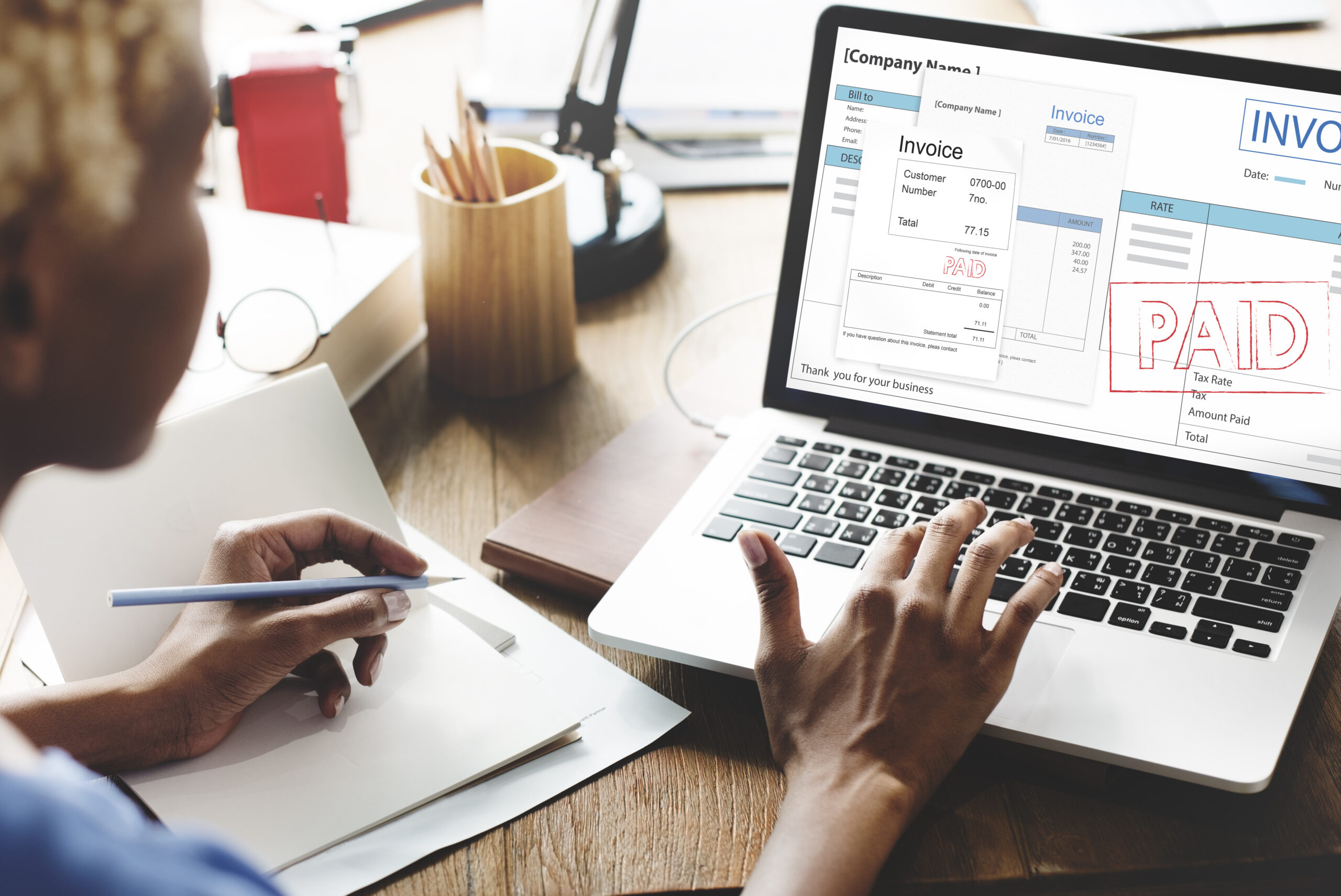Do I need to File a Tax Return?

Deciding If You Must: Do I Need to File a Tax Return This Year?
Determining “do I need to file a tax return” can be less than straightforward! This article provides clear guidance on tax filing obligations for a variety of scenarios, such as self-employment, exceeding income thresholds, or dealing with untaxed income. Without wading through complicated tax jargon, you’ll find out if you need to file, and the key considerations to keep in mind.
Key Takeaways
- Tax return filing is mandatory for individuals who are self-employed, receive untaxed sources of income, or meet certain income thresholds. Accurate income reporting is crucial to avoid penalties.
- Registration for Self-assessment is needed for filing tax returns, and individuals should be aware of the critical deadlines for submission and payment to avoid penalties. The tax year in the UK runs from April 6 to April 5 of the following year, differing from the calendar year.
- Completing the Self Assessment form requires meticulous detail about all income sources. Overpayments can result in tax refunds, while underpayments must be tackled promptly with HMRC to avoid further penalties.
Determining Your Tax Return Obligations
Beginning with the fundamentals: Who is required to file a tax return? Typically, you need to complete a tax return if you are self-employed or have acquired new, untaxed sources of income. HM Revenue and Customs (HMRC) will request a submission if it’s deemed necessary, and you are also obliged to tell them if you meet the criteria for filing a self-assessment tax return. So, if you’ve recently ventured into self-employment or have new sources of income, it’s likely that you’ll need to complete a self-assessment tax return.
However, it’s not solely about self-employment. HMRC may require you to file a tax return for a variety of reasons, which may include meeting specific income thresholds or possessing particular types of untaxed income such as rental, investment, or foreign income. If you receive a tax return from HMRC, or a notice to file one, you’re legally required to complete and submit it. This is your responsibility to do so, annually if necessary, and it allows you to claim tax relief if eligible.

When Self-Employment Triggers Filing
If you are self-employed, you might be curious about the income threshold that triggers the need to file a tax return. The answer is £1,000 in the preceding tax year. This is the threshold for paying tax on self-employed income. If your untaxed self employed income falls below that then you probably won’t need to file a tax return. But if it’s more, then you most likely will need to register with HMRC and get yourself set up for self-assessment filing duties – lucky you!
What if you have several sources of self-employed income, though? You have the option to enter each amount separately and report any capital gains tax liabilities if applicable. Not informing HMRC about your tax obligations could lead to penalties. Accurate income reporting is vital to avoid overpaying income tax or incurring penalties for underpayment.
Income Thresholds and Tax Responsibilities
Income thresholds also play a significant role in determining whether you need to file a tax return and what you need to include within it. For example, if your income surpassed £50,000 and you received Child Benefit in the previous tax year, you need to complete a designated section of the tax return so that you can repay your Child Benefit.
Remember, understanding your income thresholds and taxable income can save you from paying too much income tax and unnecessary complications when determining how much tax you owe down the line.
Special Cases: Rental, Investments, and Foreign Income
We must also consider other sources of income other than employment and seld-employment. If you have rental, investment, or foreign income, you will need to report this on your tax return. For rental income, you need to input the overall income from all rental properties and furnished holiday lettings in the UK into your tax return, along with the corresponding expenses in order to calculate if there is a taxable profit. If you have furnished holiday lettings in the European Economic Area, make sure to report the total income from these on a separate page. Accurate record-keeping and compliance are crucial.
For foreign income, this is defined as income arising from a source outside the UK or from foreign holdings. And for investment income, you need to report any dividends from accumulation units or shares that are automatically reinvested.
All of these types of income have different taxation rules, so you need to make sure you know what you need to report and where in order to avoid penalties from HMRC.
Registration and Deadlines for Filing Your Tax Return
Having established that you need to file a tax return, the subsequent step is registration. Registering for Self-assessment involves specific procedures based on your self-employment status or need to declare income. Upon registration, you’ll receive your Unique Taxpayer Reference (UTR), which is essential for the tax return filing process. Keep in mind, tax returns correspond to tax years, not calendar years. This means your tax return captures income and deductions for a specific period stipulated by the tax authorities, which may differ from the January to December calendar year.
When it comes to deadlines, the key dates to remember for tax returns are:
- January 31: Deadline for submitting tax returns for the previous tax year when filing online. For example, for the 2022/23 tax year, the online tax return must be submitted by January 31, 2024.
- April 1: Deadline for paying any outstanding tax from the previous tax year.
- July 31: Deadline for making the first payment on account for the current tax year.
- October 5: Deadline for registering for self-assessment if you are self-employed or have other untaxed income.
Make sure to mark these dates in your calendar to avoid any late filing penalties!
The Initial Step: Registering for Self-Assessment
Registering for Self Assessment requires adhering to specific procedures tailored to your circumstances. Once registered, you’ll receive a Unique Taxpayer Reference (UTR) and an account activation code, both essential for filing your tax return. You’ll also need to create a Government Gateway account, which will serve as a platform for accessing a range of online government services in the UK, such as Self Assessment, Corporation Tax, PAYE for employers, and VAT.
If you encounter difficulty logging into your Gateway account, make sure to address this issue prior to attempting to submit your Self Assessment to save time.
Tax Year vs. Calendar Year: Knowing the Difference
Grasping the distinction between tax years and calendar years is key to meeting tax return deadlines. The tax year in the UK commences on April 6th and concludes on April 5th of the subsequent year. Comprehending this distinction is crucial for adhering to tax return deadlines. It is also important to understand the difference in deadlines between filing on paper and filing online.
For example, submitting a paper tax return for the 2022/23 tax year after October 31, 2023, would result in a late filing penalty, and this penalty cannot be circumvented by filing online before January 31, 2024.
Late Filing: Consequences and Penalties
Timeliness plays a significant role in filing your tax returns. Here are the penalties for late filings:
- Up to three months late: £100 penalty
- Over three months late: additional penalties apply
- Over six months late: HMRC will approximate the tax liability and impose a penalty of 10% of the unpaid tax.
Make sure to file your tax return on time to avoid these penalties.
Furthermore, an additional daily penalty of £10 will be incurred if the tax return is delayed by more than 3 months, with a maximum limit of £900. Failure to pay late filing penalties can result in additional charges, including an additional percentage of the unpaid tax, which can range from 0% to 30%.

Completing Your Self Assessment Form
Following registration, and comprehension of the deadlines, the subsequent step involves completing your Self Assessment form. This is where you provide all the necessary details about your income and expenditure from your self-employment and any additional sources of income. It’s important to be accurate and thorough when completing your form to avoid any discrepancies that could lead to penalties or additional tax bills.
What happens though, if you have multiple income sources that you can’t find the correct supplementary page for? Not to worry. If you have income that is not associated with interest, dividends, or any items on the supplementary pages, it should be reported in the ‘Other UK income’ section of the Self Assessment tax return. And if you have any questions or doubts, it’s always a good idea to consult HMRC guidance or seek professional assistance.
Essential Information for the SA100 Form
To complete the SA100 form, you’ll need to provide personal details such as your date of birth, tax reference number, and national insurance number, along with documents like your P60, End of Year Certificate, and P11D Expenses or benefits. Before you start filling out the form, it’s advisable to thoroughly review and comprehend each section before providing the requisite information. If needed, it is advisable to consult HMRC guidance or seek professional assistance.
Bear in mind, should you make an error, you can amend the SA100 form even after its submission to HMRC.
Reporting Additional Income Sources
What about additional income sources? If you have income from self-employment, property, or capital gains that has not been subjected to taxation, you’ll need to report this on the supplementary pages of your tax return. For self-employment income, you should use SA103F if your annual turnover exceeded the VAT threshold, and SA103S if your annual turnover was below the VAT threshold.
For property income, you should use the SA105 supplementary pages when submitting your SA100 Tax Return. And for capital gains, these should be reported on the Self Assessment tax return in the tax year following the sale or disposal of an asset.
Understanding and Calculating Your Tax Bill
Upon completion of your tax return, the next stage involves comprehending and calculating your tax bill. Once you submit your Self Assessment tax return, you’ll receive a notification regarding the amount of tax and National Insurance contributions you have to pay. What happens in the event of overpayment, though? If your final tax liability is determined to be lower than the payments on account you have made, HMRC will reimburse the excess amount.
There are also various methods for settling your Self-Assessment tax bill, including bank transfer, Direct Debit, and sending a cheque. And if you’re unable to pay your tax bill in full, don’t panic. HMRC can assess your circumstances and determine whether to grant an extension, subject to specific conditions.
Breakdown of Your Tax Calculation
So, what precisely contributes to the computation of your tax bill? For self-employed individuals, your tax bill is calculated based on your profits, not your total income. This takes into account your actual receipts and allowable expenses.
National Insurance contributions, specifically Class 2 and Class 4 NICs, are computed in conjunction with income tax liabilities using the Self Assessment system for self-employed individuals.
Payment Options for Your Tax Bill
When it comes to paying your tax bill, you have several options:
- Pay via Direct Debit
- Bank transfer
- Use your tax code
- Debit card
- Credit card
- Cheque
If you’re unable to pay your tax bill in one go, you can arrange a payment plan online if you owe tax from Self Assessment. And if you’re in a hurry to settle your tax bill, the Faster Payments service enables you to settle your tax bill within 3 working days.
Keep in mind, the deadline for both submitting an online tax return and settling the tax due is midnight on 31 January 2024.

What If You Pay Too Much or Too Little Tax?
What happens though if you’ve either overpaid or underpaid tax? If you’ve overpaid your taxes, you have the option to claim a tax refund. You can use the tool provided on the government website to ascertain the required actions or alternatively, submit a letter to HMRC with ‘repayment claim’ clearly indicated at the top. You have a period of four years from the end of the tax year in which the overpayment arose to claim a refund. Once your refund claim is made, you should anticipate receiving it within 5 days to 8 weeks, subject to several factors.
In case of tax underpayment, it’s advisable to quickly reach out to HMRC, providing a comprehensive account of the situation. HMRC will offer guidance on the appropriate measures to rectify the underpayment.
Claiming a Tax Refund for Overpayment
If you’ve overpaid your taxes, you can claim a tax refund within four years from the end of the tax year in which the overpayment arose. To help you with this process, the government provides a tool on their website that provides guidance on the specific documents required for submission based on your unique circumstances. And if you’re registered for Self Assessment, the overpaid tax will be automatically adjusted in your bill.
Resolving Underpayment of Tax
If you’ve underpaid your taxes, you’ll need to take steps to rectify the situation. You can contact HMRC to request the cancellation of the debt. Keep in mind that inadequate tax payment may result in penalties ranging from 0% to 30% of the additional tax owed if the error is a result of lack of reasonable care, or higher if it is deliberate.
Thus, it’s always prudent to ascertain you’re settling the accurate tax amount to avert potential penalties.
Special Considerations for Different Types of Taxpayers
Naturally, individual tax situations vary, warranting special considerations for diverse taxpayer types. Directors of limited companies have specific tax duties to adhere to, including:
- Corporation Tax
- Income Tax
- National Insurance
- VAT
- Business Rates
They can also claim certain tax deductions to reduce their taxable profit.
Retirees also have specific tax considerations. If you’re a retiree with a state pension, your pension is subject to taxation. If your overall income, including the state pension, surpasses your Personal Allowance, you may be required to pay Income Tax on the surplus.
Directors of Limited Companies and Their Obligations
As a director of a limited company, you’re obligated to:
- Submit a self-assessment tax return, regardless of whether you receive a salary from the company or not
- Report any dividends you receive on your personal tax return as a part of your self-assessment
The director is personally accountable for disclosing and settling the relevant tax.
Retirees and State Pension Concerns
If you’re a retiree receiving a state pension, you’re subject to taxation based on the amount of state pension you were entitled to during the tax year. You’re required to report your defined benefit pension and state pension on your tax return if you have to complete one.
Seeking Assistance With Your Self Assessment
Although this blog post intends to serve as a thorough guide to filing your tax return, at times, you might require further assistance. There are several methods to contact HMRC for guidance on self-assessment tax returns. Or, you might consider acquiring professional assistance for your self-assessment tax return.
Such help can provide empowerment, valuable tax advice possibly improving your take-home income and reducing errors, and confidence that your tax return is being handled correctly.
Contacting HMRC for Guidance
HMRC offers various channels through which you can seek assistance with tax returns, including an online form, webchat, telephone, or postal mail. To avoid long wait times, it’s best to call the Income Tax general enquiry line at 0300 200 3300, use the online services helpdesk for submission issues, access their webchat through HMRC’s digital assistant, or contact 0345 120 3779 for online services support.
For specific self-assessment queries, you can call 0300 200 3600 or, if outside the UK, +44 161 930 8445.
Professional Help: Is It Worth It?
If you’re considering professional help, it’s important to understand the benefits. Tax professionals commonly offer services including:
- Tax consulting
- Tax support
- Tax automation
- Fully outsourced tax services
- Assistance with business, personal, and family tax issues
The cost-effectiveness of engaging a professional for assistance with self-assessment tax returns will vary based on your specific situation and the complexity of your tax forms.
But remember, peace of mind knowing that your taxes are being handled correctly can be priceless – that’s what we specialise in at Mazuma, along with making sure that everything is squared away correctly with HMRC for you.
Summary
Completing your tax return doesn’t have to be a daunting task. By understanding your tax return obligations, registering for Self-Assessment, submitting your tax return by the deadline, and accurately completing your Self Assessment form, you can navigate the tax return process confidently.
Whether you’re self-employed, a director of a limited company, a retiree, or someone with additional sources of income, this guide has hopefully provided you with the necessary knowledge to understand and calculate your tax bill, and to know what to do if you pay too much or too little tax. Remember, help is available from HMRC and professional tax advisors if you need it. So, don’t let tax returns stress you out. Equip yourself with the right information, stay organised, and you’ll be able to tackle your taxes like a pro!

Frequently Asked Questions
Is it mandatory to file a tax return in the UK?
In most cases, employees in the UK do not need to file a tax return as their taxes are typically paid through the PAYE system. However, individuals with complex tax affairs, such as untaxed income or taxable employment benefits, may be required to submit a tax return.
What is the minimum income to file tax return in UK?
If you earn more than £1,000 of untaxed income during a tax year in the UK, you will need to file a tax return.
How do I tell HMRC I don’t need to do a tax return?
You can inform HMRC that you don’t need to do a tax return by either calling them at 0300 200 3311 or using the online form on their website. Remember to provide accurate and honest information when communicating with HMRC.
Do you need to do a tax return if you earn over 100k?
Yes, if you earn over £100,000 a year, you must file a self-assessment tax return with HMRC by the specified deadline.
Will HMRC tell me if I need to do a tax return?
No, HMRC may not send you a paper communication telling you to file a return; instead, you may receive an email alert if you are signed up for HMRC’s digital self-assessment email reminders service.






